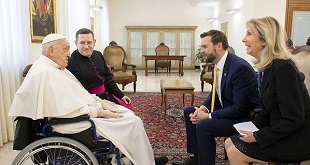
COMMENT | Gertrude Kamya Othieno | Politics and development are deeply intertwined in practice, yet they are conceptually distinct and studied separately in most institutions of higher learning. Political science typically examines questions of power, governance, authority, and statecraft, while development studies explore economic growth, poverty reduction, social transformation, and human well-being. Although both disciplines converge around issues of governance, resource distribution, and institutional capacity, their analytical lenses often differ. Politics asks who gets what, when, and how; development asks how societies can improve the quality of life for all.
Despite this disciplinary separation, the boundaries become porous in real-world contexts, particularly in postcolonial and transitional societies, where development is both a political promise and a political tool. In these settings, development initiatives are not neutral acts of technical planning but are often infused with political meaning, intent, and consequence.
The politicisation of development occurs when development becomes a means of consolidating political power rather than addressing structural inequalities or meeting citizens’ needs. Governments may channel public goods and services, roads, electricity, education, or agricultural inputs; towards regions or communities that offer electoral support. Conversely, opposition-aligned areas may be neglected or receive only minimal services, reinforcing political marginalisation.
This dynamic has been observed across the Global South. In some African contexts, state-led development projects are announced with great public spectacle during electoral campaigns, often without feasibility studies or follow-through. Elsewhere, development funds may be allocated to districts not based on need or planning metrics but on political loyalty. In parts of South Asia and Latin America, similar patterns have been documented, where infrastructure or welfare programmes are disproportionately steered toward constituencies aligned with the ruling party.
The institutional frameworks responsible for development are not immune to this politicisation. Planning authorities, investment bodies, and regulatory agencies, although intended to function with technical autonomy, are frequently influenced by political appointments, informal networks, and patron-client relationships. This undermines both transparency and effectiveness. In some instances, the very design of development interventions reflects political priorities rather than empirically grounded assessments of public need.
Yet, politicisation is not solely negative. Politics, by nature, involves prioritisation. Elected leaders must balance competing demands and distribute finite resources. The concern arises when these decisions are made not on the basis of equity, evidence, or public interest but on narrow partisan lines. Such practices distort national development agendas, weaken public institutions, and erode citizens’ trust in the state.
The consequences are far-reaching. Development becomes fragmented, uneven, and reactive. Marginalised communities remain under-served, and national planning cycles are disrupted by political timelines. Moreover, the conflation of development with political reward risks turning public goods into instruments of control, where citizens perceive services not as rights but as favours from the political elite.
In conclusion, while politics and development remain distinct areas of academic inquiry, they converge in practice in ways that shape outcomes on the ground. Recognising and critically engaging with the politicisation of development is essential for scholars, practitioners, and policymakers alike. Only through transparent, inclusive, and accountable governance can development fulfil its promise, not as a tool of political leverage, but as a collective national project anchored in justice and human dignity.
*****
 Gertrude Kamya Othieno | Political Sociologist in Social Development (Alumna – London School of Economics/Political Science) | Email – gkothieno@gmail.com
Gertrude Kamya Othieno | Political Sociologist in Social Development (Alumna – London School of Economics/Political Science) | Email – gkothieno@gmail.com
 The Independent Uganda: You get the Truth we Pay the Price
The Independent Uganda: You get the Truth we Pay the Price



